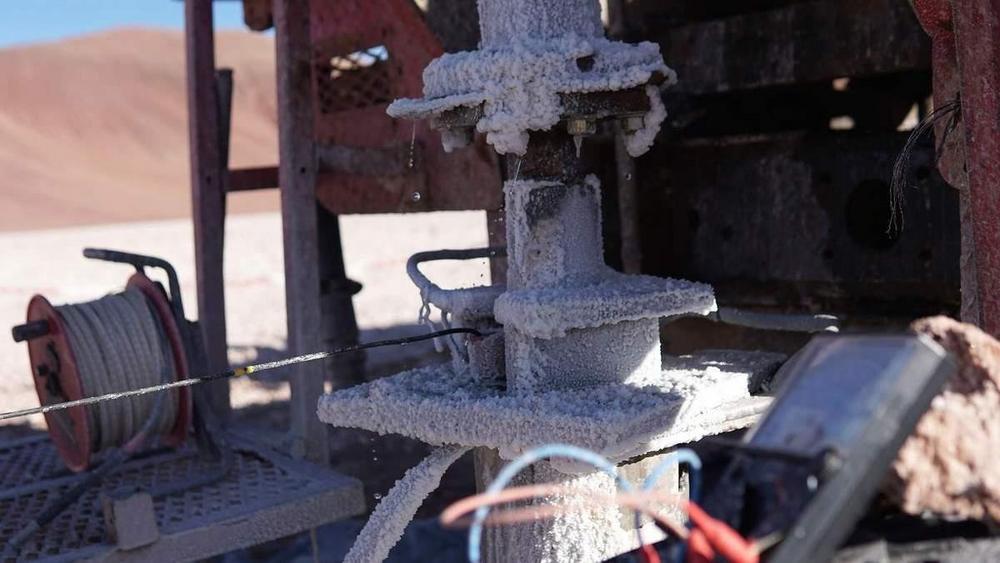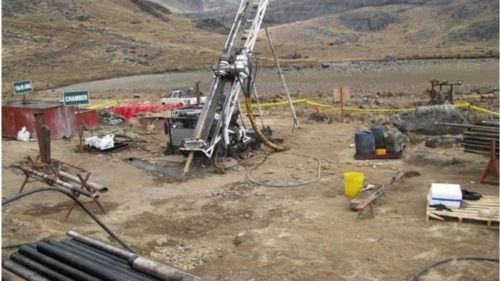
Lithium provides energy storage
The triumph of lithium-ion batteries continues unabated. When the lifetime of a car battery is over, the raw material lives on.
For eight or ten years, the lithium-ion battery of an electric car performs its services. In a few years, there will be plenty of rechargeable batteries with which something useful can still be done. Around 90 percent of the valuable raw materials contained in the batteries, such as lithium, cobalt and nickel, can be recycled. Recycling is worthwhile. Work is even underway to achieve a higher recycling rate for aluminum or copper. Often, the batteries discarded in vehicles can still be used in other areas, the keyword being secondary recycling. The old vehicle lithium-ion batteries can often be used as emergency storage or as intermediate storage for solar systems. And battery recycling factories are already springing up.
According to the International Renewable Energy Agency, global electricity generation from solar plants was still around 9 TWh in 2012 and will be almost 831 TWh by 2020. As with electromobility, lithium is also a key raw material here. As a result, lithium prices are also holding at a high level, while the prices of other industrial raw materials are currently trending downward. Lithium prices have now peaked in the Chinese currency, the yuan. For lithium companies, this is of course a reason to rejoice. Most lithium comes from Australia, Chile, China and Argentina. The so-called "lithium triangle" in Argentina, Bolivia and Chile is famous.
Alpha Lithium – https://www.youtube.com/watch?v=QyBOY72WjuM -, for example, is based there. The company’s Tollilar project (27,500 hectares) scores with a positive resource estimate. In addition, there is the Hombre Muerto lithium project (more than 5,000 hectares).
Nevada is home to Cypress Development’s – https://www.youtube.com/watch?v=-N38AA3Cokg – prospective Clayton Valley lithium project. A feasibility study is expected to be completed soon.
Current corporate information and press releases from Alpha Lithium (- https://www.resource-capital.ch/en/companies/alpha-lithium-corp/ -) and Cypress Development (- https://www.resource-capital.ch/en/companies/cypress-development-corp/ -).
In accordance with §34 WpHG I would like to point out that partners, authors and employees may hold shares in the respective companies addressed and thus a possible conflict of interest exists. No guarantee for the translation into English. Only the German version of this news is valid.
Disclaimer: The information provided does not represent any form of recommendation or advice. Express reference is made to the risks in securities trading. No liability can be accepted for any damage arising from the use of this blog. I would like to point out that shares and especially warrant investments are always associated with risk. The total loss of the invested capital cannot be excluded. All information and sources are carefully researched. However, no guarantee is given for the correctness of all contents. Despite the greatest care, I expressly reserve the right to make errors, especially with regard to figures and prices. The information contained herein is taken from sources believed to be reliable, but in no way claims to be accurate or complete. Due to court decisions, the contents of linked external sites are also co-responsible (e.g. Landgericht Hamburg, in the decision of 12.05.1998 – 312 O 85/98), as long as there is no explicit dissociation from them. Despite careful control of the content, I do not assume liability for the content of linked external pages. The respective operators are exclusively responsible for their content. The disclaimer of Swiss Resource Capital AG also applies: https://www.resource-capital.ch/en/disclaimer/
Swiss Resource Capital AG
Poststrasse 1
CH9100 Herisau
Telefon: +41 (71) 354-8501
Telefax: +41 (71) 560-4271
http://www.resource-capital.ch
Telefon: +49 (2983) 974041
E-Mail: info@js-research.de
![]()




